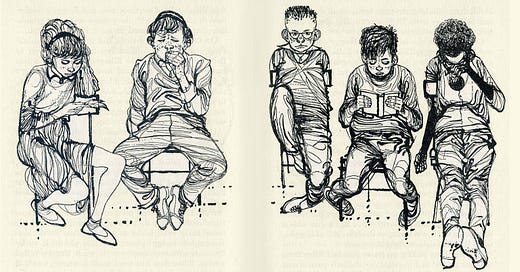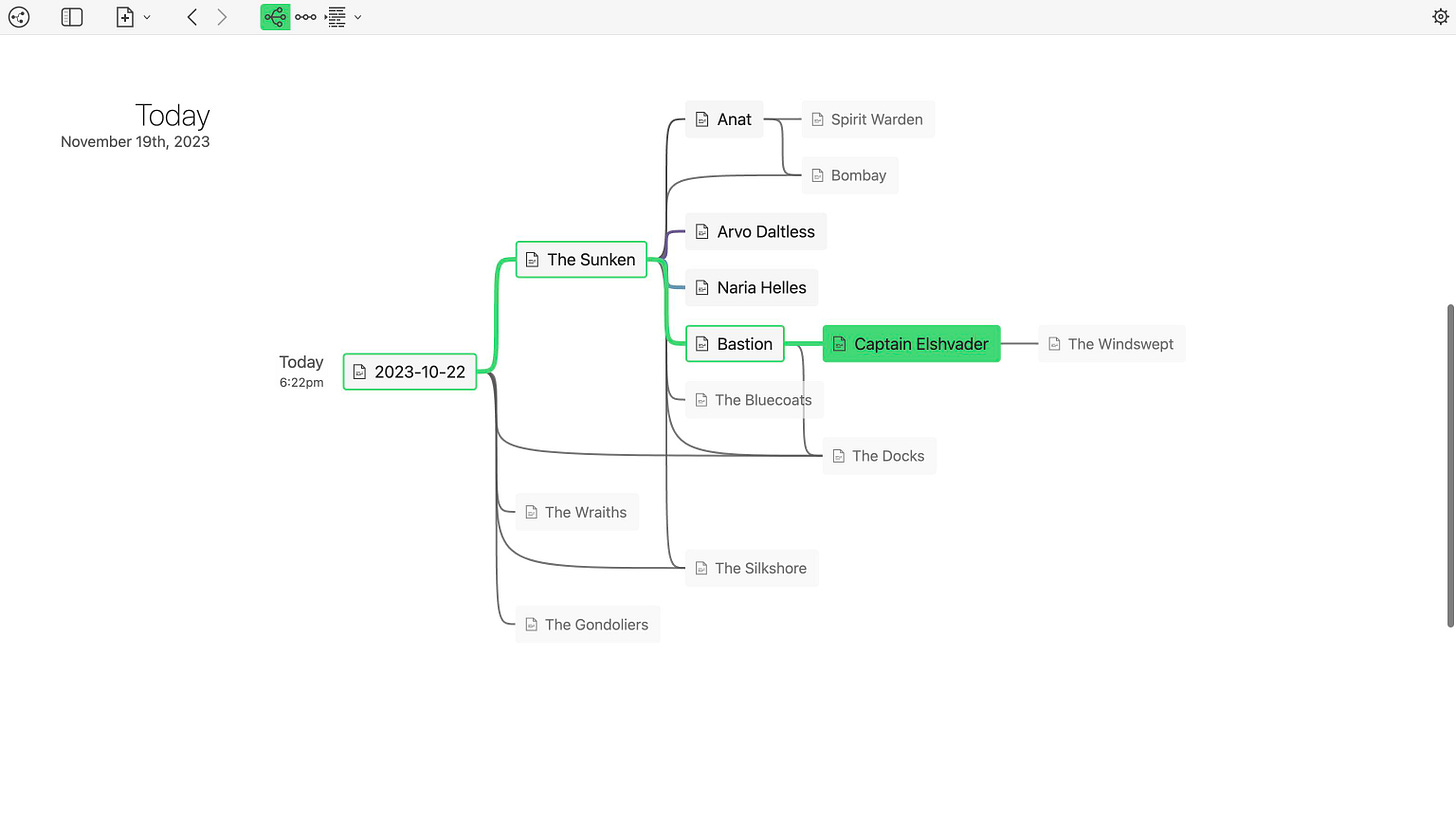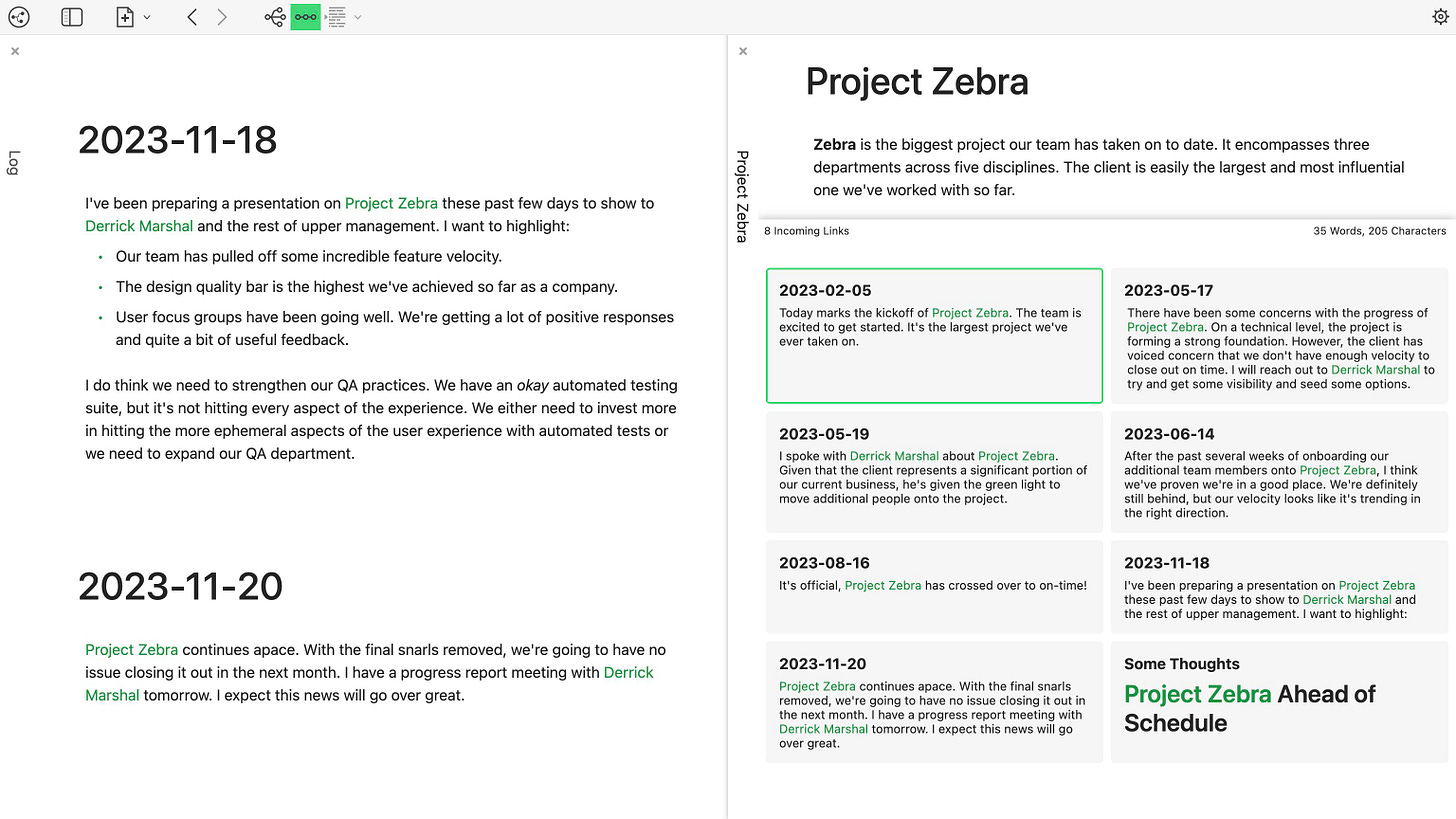Intro
This is Time's Corner, an occasional newsletter by Christian Leithart. I’m co-founder of Little Word and editor of Good Work magazine.1 By day, I teach, and by night, I edit this newsletter.
An incredibly generous friend pledged his monetary support to this newsletter if I enabled paid subscriptions, so I have done so. (Thank you!) I don’t plan to put anything behind a paywall, so everything should stay the same on your end, O reader. If something breaks, though, shoot me an email.
Today I troop back to the classroom to prepare for the students, who will troop in behind me next week. I hope to continue sending newsletters throughout the school year, but you never know. Teaching has a way of filling every corner of the mind, including Time's one.
Reading…
I'll be teaching several new books for my Humanities class this year. Here's the full reading list:
The Tombs of Atuan, Ursula K. Le Guin (summer reading)
Gilgamesh the Hero, Geraldine McCaughrean
The God Beneath the Sea, Leon Garfield and Edward Blishen
The Oresteia, Aeschylus (trans. Ted Hughes)2
Aeneid, Virgil (trans. Frederick Ahl)
The Last Unicorn, Peter S. Beagle
The students will also work their way through several packets containing primary sources, questions, and exercises.
My class is meant to be one long lesson or story told over the course of many months. If I were teaching British or American literature, I suppose I’d tell that story historically. But I teach ancient literature, where history is, shall we say, unconventional. Instead, I focus on worldview. I want my students to get an ancient pagan’s perspective on the world and humanity’s place in it.
In previous years, I’ve focused on things like death and “the good life.” This year I want to talk about gods and men. We start with Le Guin because, as a fantasy novel, it doesn’t need any context and its themes are very black-and-white (almost literally). McCaughrean’s version of Gilgamesh captures the weirdness of the ancient epic while avoiding the unpleasantness. I’m most excited about The God Beneath the Sea. (I may devote an entire newsletter to it.) It’s weird and grim and often unpleasant, and it’s perfect for kids who grew up hearing squeaky clean versions of the Greek myths. We’re reading Aeschylus for the sake of copiousness, and because of the debate between the gods at the end of The Eumenides. The Aeneid gives us pius Aeneas, the ideal pagan man. As for The Last Unicorn, well… You’ll just have to wait and see how that fits it. It wouldn’t be a very good class without some mystery, would it?
I expect I’ll be sharing some of my thoughts about these books here or on my blog.
…and Writing
They say that skill doesn't depend on the quality of your tools. True enough. But anyone who spends a lot of time writing knows the difference a good word processor can make. Nowadays, writing in Microsoft Word (especially in the early stages of a project) feels like jogging through a marsh. Give me something fast and convenient. Something I can use like a notebook, quickly dashing out everything from ideas to research to first drafts.
I started writing my rough drafts in Highland 2, which is sleek and fast, but it's designed for writing screenplays, not, say, newsletters or short notes. After poking around I decided to download iA Writer and kick its tires—not for me. I was about to move on to Ulysses, when a random comment on Reddit sent me to Tangent.
From the first moment, I knew it was the writing software for me. Not only is it simple and fast, it has two features that I've often craved in the early stages of a new project: mapping and wikilinks.
When you open multiple files in Tangent, it lines them up like pages in a book. You can flip back and forth between files or open them side-by-side.
Even better, it keeps track of which files you opened so that, at the end of the day, you can see a map of how your workflow looked that day.
Pretty cool. But that’s not even the best part.
Years ago, probably in grad school, I found myself wishing for a word processor that could let me "nest" various chunks of text. If I was writing about Paradise Lost, say, I might want a short summary of one of my sources close at hand. If I kept the summary in the document I was working in, it would clutter up the essay, but if I put it in another document off to the side, I could easily lose track of it at the end of the day. My solution was to put all of my research in one big document so that I could easily search it. Not elegant.
I didn't know, but what I needed was wikilinks. A wikilink connects one document to another, exactly like a hyperlink on a website.
In Tangent, clicking a wikilink feels like flipping to another page in your notebook while keeping your finger in the original spot. Really useful for big projects like novels and research papers and for smaller pieces—like this newsletter. Ah… writing bliss.
Still not the best part!
The best part is that it’s free.
Links
Gary Marcus explains why LLMs (the form of AI that powers ChatGPT) are so bad at handling problems they haven't been trained on.
I love the way Robin Rendle formats his online essays. They feel appropriate to the internet medium in a way that most online writing does not.
Some of you don’t know that I blog (sporadically) at my website. My most recent post is an explanation of why culture war is necessary.
I also recently wrote an article for Theopolis about Watership Down, one of my favorite books.
Upcoming
I mentioned in a previous newsletter that I adapted The Scarlet Pimpernel into a stage play to be performed at my school this fall. The dates for the play are September 26th and 27th. I’ll send out more info when we get closer.
Up To
Reading: In the middle of Apocalypse Never by Michael Shellenberger, in which he dismantles most environmentalist talking points chapter by chapter. Since he himself is an environmental scientist (and activist), he can get away with it.
Watching: Animated TV shows: Sherlock Hound (with the kids) and Scavengers Reign (by myself)
Listening: Hovvdy, on the recommendation of Audio Deacon.
Eating: Lots of home-made ice cream. We had our last neighborhood ice-cream social yesterday. Much fun was had by all.
About
I’m Christian Leithart, a writer and teacher living in Birmingham, Alabama. I’m not active on social media, but you can read my blog here. Use the button below to share this issue of Time’s Corner, if you so desire. Thanks much for reading.
If you’ve been reading Time’s Corner for a while, you may be wondering what happened to Psalm Tap. The short answer is that it’s not happening this year. Lord willing, it’ll be back in 2025.
I originally chose Andy Hinds' translation because I'm prioritizing accessibility over accuracy, but alas, it's out of print. Hughes' was the next most-readable.







